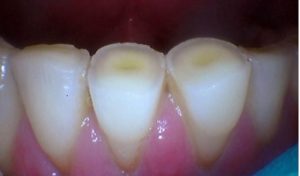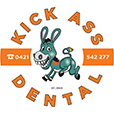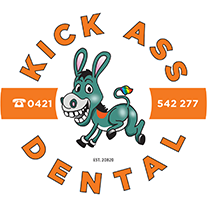What Does Grinding Teeth at Night Feel Like?
Grinding teeth, medically known as bruxism, is a condition where individuals involuntarily clench or grind their teeth, often during sleep. This unconscious habit can lead to various dental and health issues. Let’s explore what grinding teeth at night feels like, its potential causes, and the effects it can have on your overall well-being.
Understanding Nocturnal Bruxism
Definition: Nocturnal bruxism is the term used to describe teeth grinding that occurs primarily during sleep. While the person grinding their teeth might not be aware of the habit, its consequences can be significant.
1. Sensation of Pressure and Tension
Individuals who grind their teeth at night often wake up with a sensation of pressure and tension around their jaw area. This discomfort can extend to the temples and even the ears. The act of clenching and grinding places stress on the jaw muscles, leading to muscle soreness.
2. Tooth Sensitivity
Teeth grinding can cause enamel to wear down over time. As a result, individuals may experience increased tooth sensitivity. They might notice discomfort when consuming hot, cold, or acidic foods and beverages. This sensation can be unpleasant and might even affect their dietary choices.

3. Headaches
Bruxism can contribute to tension headaches that are often concentrated around the temples. The constant pressure on the jaw and surrounding muscles can trigger headaches that vary in intensity. These headaches can persist throughout the day, impacting one’s ability to concentrate and function optimally.
Potential Causes of Teeth Grinding
While the exact causes of teeth grinding are not always clear, several factors can contribute to this behavior:
1. Stress and Anxiety
Stress and anxiety are common triggers for teeth grinding. When individuals experience heightened emotions, they might unconsciously clench their jaws and grind their teeth as a physical response. This can be particularly pronounced during sleep.
2. Malocclusions
Malocclusions, or improper alignment of the teeth, can lead to bruxism. The discomfort caused by the misalignment might result in grinding as the body attempts to find a more comfortable resting position for the jaw.

3. Sleep Disorders
Some sleep disorders, such as sleep apnea, have been linked to teeth grinding. The body’s struggle to breathe properly during sleep can contribute to muscle tension and grinding as it tries to open up the airways. For kick ass dental tooth grinding see here.
The Impact on Dental Health
Teeth grinding can have significant repercussions on dental health:
1. Tooth Erosion
The friction generated by grinding can wear down the tooth enamel, leading to tooth erosion. This can result in increased tooth sensitivity, cavities, and other dental issues.
2. Cracked and Chipped Teeth
Excessive pressure on the teeth can lead to cracks and chips. This not only affects the appearance of the teeth but also compromises their structural integrity.
3. Jaw Pain and Disorders
Bruxism can contribute to the development of temporomandibular joint (TMJ) disorders. The constant strain on the jaw joint can lead to pain, discomfort, and difficulty in opening and closing the mouth.
Managing and Preventing Bruxism
If you suspect that you are grinding your teeth at night, consider these preventive measures:
1. Stress Management
Engage in stress-reduction techniques such as meditation, deep breathing, and yoga to minimize the triggers that lead to teeth grinding.
2. Mouthguards
Dentists often recommend wearing a custom-fitted mouthguard at night to protect the teeth from grinding. These oral appliances provide a barrier that prevents enamel wear and reduces muscle strain.
3. Dental Correction
In cases of malocclusion, orthodontic treatment might be advised to correct the alignment of the teeth, which can alleviate grinding.
4. Treating Underlying Conditions
If sleep disorders are contributing to bruxism, seeking treatment for those conditions can indirectly address the grinding issue.
In conclusion, grinding teeth at night can lead to various uncomfortable sensations and potentially serious dental health issues. Being aware of the symptoms and causes of bruxism can help individuals take proactive steps to manage and prevent the habit, leading to improved overall well-being and oral health.





